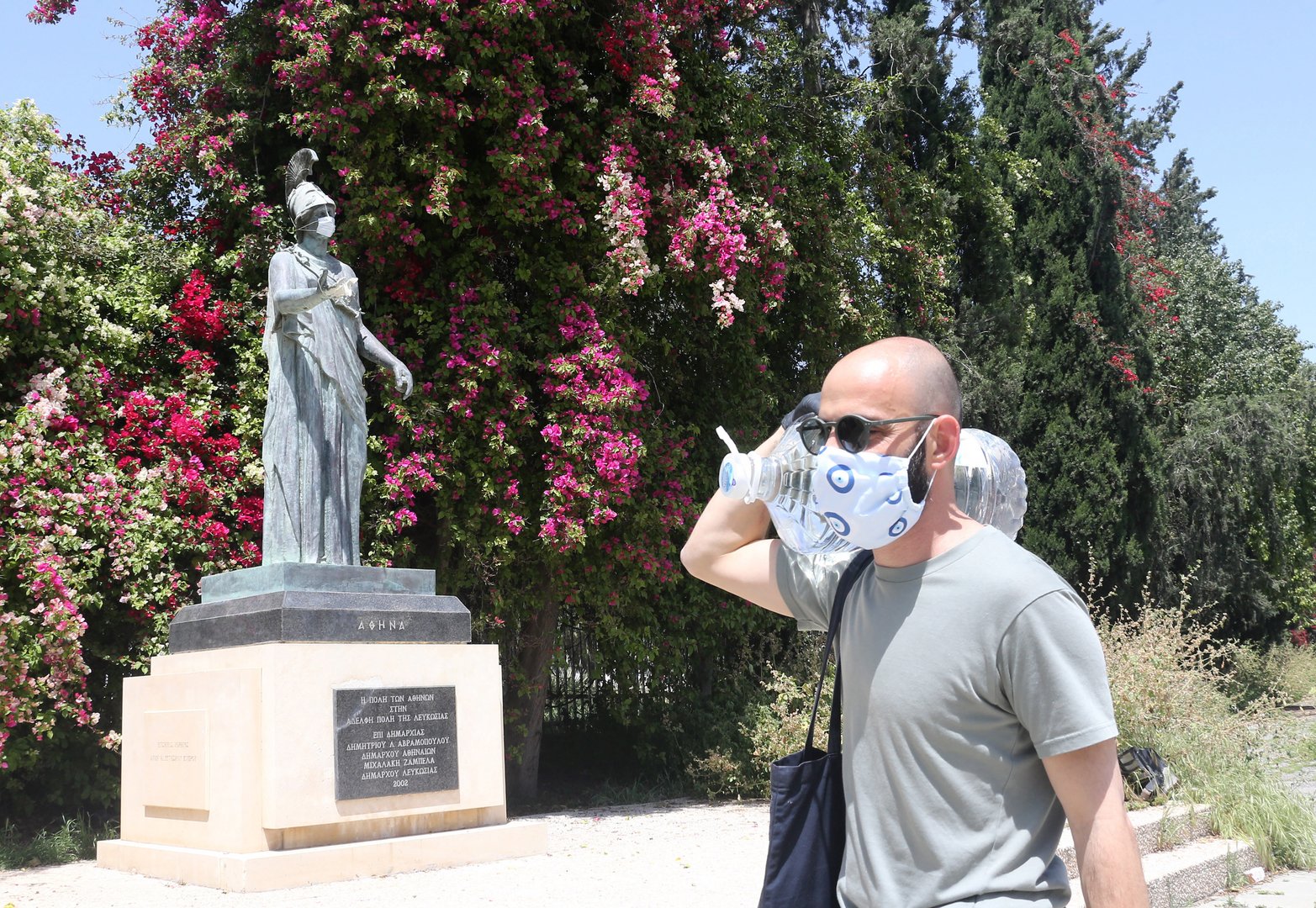Despite further relaxations in force from Tuesday, Cyprus’ mask mandate remains in place amid growing impatience from the public, particularly regarding its use outdoors, and ambiguity from officials.
Last week, the health ministry announced restrictions would ease further from June 1 thanks to a dramatic improvement in the national epidemiological outlook, which was attributed to the accelerated vaccination programme.
And on Tuesday, Health Minister Constantinos Ioannou said the government might consider additional relaxations if all indicators remain positive.
“We are building a wall of immunity through vaccinations, and the benefits are already starting to show,” he told the Cyprus News Agency.
The minister added that infections and hospitalisations among those aged 60 and over have dropped since 70 per cent of this portion of the population has been vaccinated.
According to the ministry, around 52 per cent of the population have received at least one dose of the anti-coronavirus vaccine, the goal being to reach 65 per cent by the end of June.
The new relaxations raise the capacity that indoor spaces are allowed to operate at to 50 per cent, also allowing gatherings of up to 20 people in homes.
In addition, restaurants, cafes and bars will be permitted to open their indoor spaces to the public.
June 10 will also see the curfew completely scrapped and nightclubs reopening, albeit with a seated-only mandate that prohibits dancing.
For now, the SafePass will remain in place, with anyone aged 12 and older required to carry either a vaccination certificate showing they received at least one dose of the anti-coronavirus vaccine three weeks prior, proof they contracted the virus in the last six months, or a negative PCR or rapid test of 72 hours.
A SafePass will be needed to visit indoor areas of restaurants, cafés and bars, malls and shopping centres, places of worship, theatres and cinemas, casinos, and social gatherings such as weddings and christenings.
But despite all indications pointing towards a tentative “return to normal,” one much-contested measure remains: the outdoor mask mandate.
The measure has recently been scrapped for those with at least one dose of the vaccine in South Korea, while the CDC announced in late April that masks outdoors were not compulsory for fully vaccinated Americans.
Masks became compulsory indoors and out in Cyprus in October 2020, with the government’s advisory committee on coronavirus publicly expressing their surprise at the mandate.
Asked when masks will be scrapped, Ioannou said that he did not know. “We are definitely closer to a degree of normality with the new relaxations, but some measures might need to stay in place,” he said.
He added that the ministry is waiting for experts’ suggestions on how to proceed with the further de-escalation of measures.
However, speaking to the Cyprus Mail, coronavirus advisory team member Petros Karayiannis said that whether or not the mask mandate is lifted is up to the ministry.
“At some point we might see masks removed, but not right now,” the Professor of Microbiology/Molecular Virology at the University of Nicosia Medical School said, adding that the health ministry is waiting to reach its goal of vaccinating 65 to 70 per cent of the population before even considering removing the mandate.
He continued that despite the fact local infections are low, the increase in tourist arrivals could import a number of variants, so “it is better to be safe than sorry”.
Daily police checks often end with members of the public being booked for not wearing a mask outdoors but ironically, they will now be able to eat and drink indoors without one.
Asked whether this makes sense, police spokesman Christos Andreou said that the police actions are determined by the decrees, and not the epidemiological picture.
“There are exceptions, we’re not unreasonable,” he told the Cyprus Mail, explaining that officers are not likely to book someone if they are taking a walk alone without a mask, for example.
He added that police will only act in higher risk scenarios, like people from different households riding in the same car. “Even in those cases we simply reprimand people. We only book if they are resistant,” he said.
Asked about how the SafePass measure will be perpetuated with the new reopenings, Andreou pointed out that the police are not solely responsible for Covid-related inspections.
“There are the competent ministries and of course, the inspectors,” he said.
Karayiannis concluded that inspections are necessary “until we reach a relative feeling of safety”.







Click here to change your cookie preferences